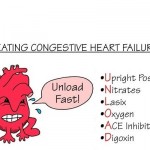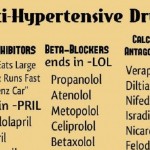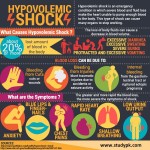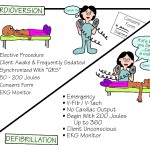Nursing Mnemonics: Treating Congestive Heart Failure Heart failure is a condition in which the heart is no longer able to pump out enough oxygen-rich blood. This causes symptoms to occur throughout the body. … [Read more...] about Nursing Mnemonics: Treating Congestive Heart Failure
Nursing
Nursing Mnemonics: Anti-hypertensive Drugs
Beta Blockers Beta blockers help the heart beat with less speed and force. The heart pumps less blood through the blood vessels with each beat, and blood pressure decreases. Angiotensin Converting Enzyme Inhibitors (ACEI) ACE inhibitors keep the body from making a hormone called angiotensin II, which causes blood vessels to narrow. These medications decrease blood pressure … [Read more...] about Nursing Mnemonics: Anti-hypertensive Drugs
Nursing Infographics: Hypovolemic Shock
Hypovolemic shock results from a decreased intravascular volume due to hemorrhage, plasma or water and electrolytes loss. This leads to an inadequate tissue perfusion that results in cellular dysfunction and finally in irreversible cellular damage. … [Read more...] about Nursing Infographics: Hypovolemic Shock
Nursing Mnemonics: Preload vs Afterload
Nursing Mnemonics: Preload vs Afterload Preload Volume of of blood in ventricles at end of diastole (end diastolic pressure). Afterload Resistance left ventricle must overcome to circulate blood. … [Read more...] about Nursing Mnemonics: Preload vs Afterload
Nursing Study: Cardioversion vs Defibrillation
Nursing Guide: Cardioversion vs Defibrillation Cardioversion is a corrective procedure where an electrical shock is delivered to the heart to convert, or change, an abnormal heart rhythm back to normal sinus rhythm. Most elective or "non-emergency" cardioversions are performed to treat atrial fibrillation (A Fib) or atrial flutter (AFL), non-life threatening abnormal rhythms … [Read more...] about Nursing Study: Cardioversion vs Defibrillation




